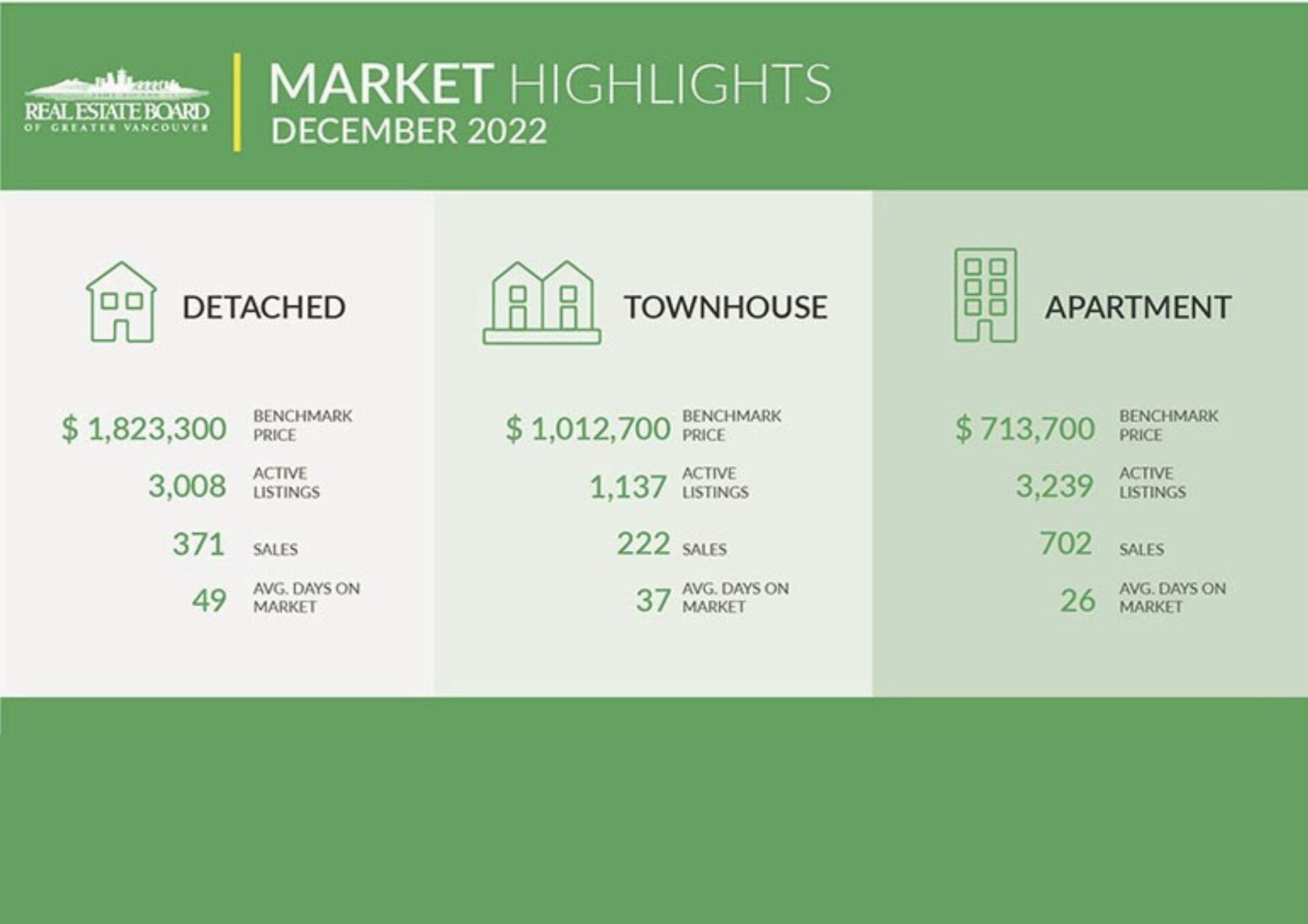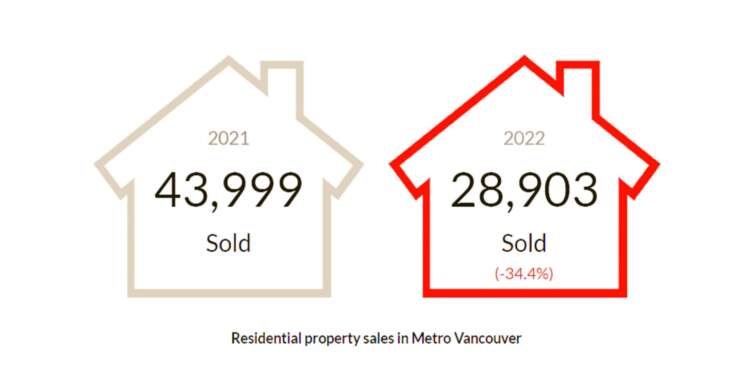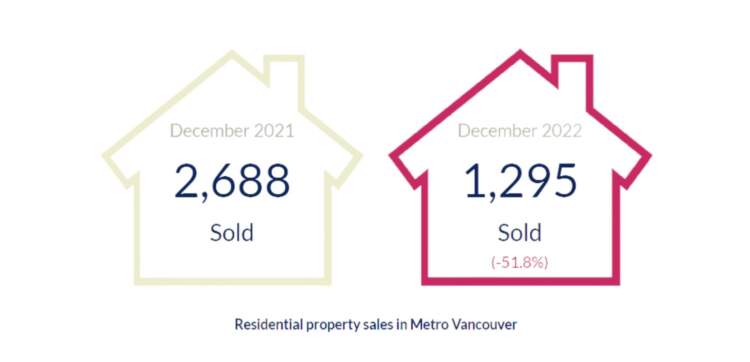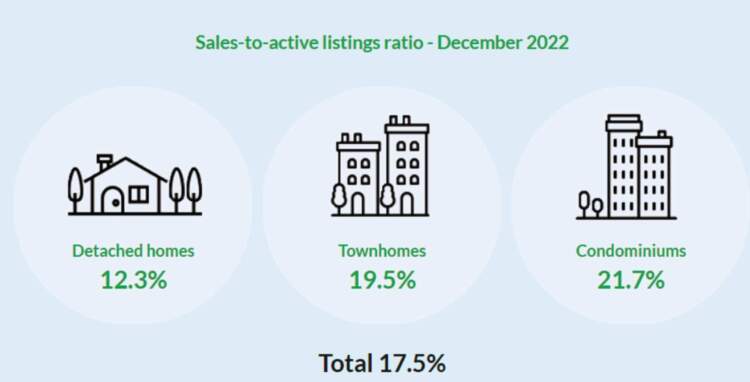
A “Cooling-Off” Period Has Been Introduced for Home Sales by BC Government
Sources: BCREA, REBGV
According to a new regulation released by the provincial government on July 21, home buyers have up to three business days to back out of a residential purchase.
Beginning January 1, 2023, this regulation will be enforced by the government.
According to the province, this three-day cooling-off period will allow buyers to conduct their due diligence, such as securing financing or arranging home inspections.
As a real estate consumer, if you’re purchasing or selling residential real property it’s important to understand buyer’s rights during the Home Buyer Rescission Period, and how they might apply to your real estate transaction.
During the Home Buyer Rescission Period, certain buyers have the right to rescind or cancel their offer to purchase residential real property within a specified period of time (three business days) after an offer has been accepted.
If a buyer decides to rescind their offer during the Home Buyer Rescission Period, they must pay the seller 0.25% of the purchase price.
The fee must be paid regardless of any clauses in the contract that might say otherwise.
The rescission period applies to transactions of residential real property involving:
- a detached house;
- a semi-detached house;
- a townhouse;
- an apartment in a duplex or other multi-unit dwelling;
- a residential strata lot, as defined in Section 1 of the Strata Property Act;
- a manufactured home that is affixed to the land; and
- a cooperative interest, as defined in Section 1 of the Real Estate Development Marketing Act, which includes a right of use, or occupation of a dwelling.
At the beginning of your relationship with your REALTORS®, they will provide you with general information about the right of rescission by giving you a Disclosure of Representation in Trading Services form, provided by the regulator.
If the Home Buyer Rescission Period applies, buyers and sellers’ clients will receive a second disclosure from their REALTOR® at the time of preparing or presenting an offer.
In most cases, this disclosure will be included within BCREA’s Contract of Purchase and Sale Residential form.

The information in this disclosure will include the following:
- the fact that the rescission period can’t be waived;
- the period for the buyer to rescind the offer is three clear business days;
- the recession period begins on the day after the offer is accepted by the seller and the buyer.
Business days are Monday to Friday and do not include weekends or holidays as defined under the Interpretation Act. The rescission period ends immediately before midnight on the third business day.
It’s important to be aware that the rescission period begins when both parties accept an offer, whether it’s subject-free or not. This means that any subject removal period, such as inspection or finance, would start concurrently with the three-business day rescission period.
The calculation of the dollar amount that the buyer must pay to the seller for exercising the right of rescission and when and how the amount will be paid.
If the real estate brokerage is holding a deposit, and the buyer rescinds the offer, the brokerage holding the deposit must pay the rescission amount to the seller, and pay the balance, if any, back to the buyer.
If no deposit was paid, or the deposit isn’t enough to cover the rescission fee, the buyer must promptly pay the rescission amount (or unpaid paid portion) to the seller.
If the buyer refuses to pay the rescission fee, the seller will need to seek legal advice on how to recover the rescission amount from the buyer.
There are some types of properties and transactions that are exempt from the buyer’s right to rescind during the Home Buyer Rescission Period.
These include:
- residential real property that is located on leased land;
- a leasehold interest in residential real property;
- residential real property that is sold at auction;
- residential real property that is sold under a court order, or the supervision of a court; and
- contracts to which Section 21 of the Real Estate Development Marketing Act applies.
If the buyer wishes to perform due diligence during the Home Buyer Rescission Period, they must ensure they have included the right to do so including terms in the contract that allow them access to the property. The buyer may rescind the contract at any point during the Home Buyer Rescission Period, for any reason, and isn’t required to inform the seller of the reason.
To exercise this right, the buyer must serve written notice to the seller before the end of the three-business day period.
There is no mandatory form for buyers to exercise their right of rescission, but they must provide the following information on the notice to the seller:
- the address, parcel identifier (or PID), or a description of the property;
- the name, and the signature or electronic signature of the buyer who is exercising the right of rescission;
- the name of each seller who is a party to the contract; and
- the date the right of rescission is being exercised.
Written notice can be served by providing the seller or a person authorized to receive notice on behalf of the seller as set out in the contract by:
- registered mail to the address;
- by fax;
- or by email, with a requested read receipt.
If you have any questions, please call Geoff Jarman at 604-313-7280 or fill out the contact form.
To read more local news and updates please check our BLOG PAGE
To view Geoff Jarman’s Listings CLICK HERE
Tags: real estate Vancouver, Vancouver real estate. Vancouver realestate, home sales, Vancouver homes sale, house prices, housing prices, house buying, real estate Vancouver market, Vancouver market, real estate agent Vancouver, Burnaby realtor, Geoff Jarman, Geoff Jarman top Burnaby realtor, 2023 market news, Vancouver Multifamily Market, BC, housing market, Home Buyer Rescission Period

Metro Vancouver Housing Market: Rising Mortgage Rates Brought Uncertainty and Caution in 2022
Source: REBGV

Picture source: REBGV
After seeing record sales and prices during the pandemic, Metro Vancouver’s* housing market experienced a year of caution in 2022 due to rising borrowing costs fueled by the Bank of Canada’s ongoing battle with inflation.
The Real Estate Board of Greater Vancouver (REBGV) reports that residential home sales in the region totalled 28,903 in 2022, a 34.3 per cent decrease from the 43,999 sales recorded in 2021, and a 6.6 per cent decrease from the 30,944 homes sold in 2020.
Last year’s sales total was 13.4 per cent below the 10-year sales average.
“The headline story in our market in 2022 was all about inflation and the Bank of Canada’s efforts to bring inflation back to target by rapidly raising the policy rate. This is a story we expect to continue to make headlines into 2023, as inflationary pressures remain persistent across Canada,”
Andrew Lis, REBGV Director, economics and data analytics
Home listings on the Multiple Listing Service® (MLS®) in Metro Vancouver reached 53,865 in 2022. This is a 13.5 per cent decrease compared to the 62,265 homes listed in 2021 and a 0.8 per cent decrease compared to the 54,305 homes listed in 2020.
Last year’s listings total was 3.2 per cent below the region’s 10-year average.
The total number of homes currently listed for sale on the MLS® system in Metro Vancouver is 7,384, a 41 per cent increase compared to December 2021 (5,236) and a 19.6 per cent decrease compared to November 2022 (9,179).
The MLS® Home Price Index composite benchmark price for all residential properties in Metro Vancouver is currently $1,114,300. This represents a 3.3 per cent decrease over December 2021, a 1.5 per cent decrease compared to November 2022, and a 9.8 per cent decrease over the past six months.
“Closing out 2022, the data show that the Bank of Canada’s decisions to increase the policy rate at seven of the eight interest rate announcement dates in 2022 has translated into downward pressure on home sale activity and, to a lesser extent, home prices in Metro Vancouver,” Lis said.
“While the consensus among many economists and forecasters suggests the Bank of Canada may be near the end of this tightening cycle, rates may remain elevated for longer than previously expected since the latest inflation figures aren’t showing signs of abating quickly. We’ll watch the 2023 spring market closely to see if buyers and sellers have adjusted to the higher borrowing-costs and are participating more actively in the market than we have seen over the last 12 months.”

Picture source: REBGV
Residential home sales in the region totalled 1,295 in December 2022, a 51.8 per cent decrease from the 2,688 sales recorded in December 2021, and a 19.8 per cent decrease from the 1,614 homes sold in November 2022.
Last month’s sales were 37.7 per cent below the 10-year December sales average.
There were 1,206 detached, attached and apartment properties newly listed for sale on the MLS® in Metro Vancouver in December 2022. This represents a 38 per cent decrease compared to the 1,945 homes listed in December 2021 and a 60.5 per cent decrease compared to November 2022 when 3,055 homes were listed.
For all property types, the sales-to-active listings ratio for December 2022 is 17.5 per cent. By property type, the ratio is 12.3 per cent for detached homes, 19.5 per cent for townhomes, and 21.7 per cent for apartments.

Picture source: REBGV
Generally, analysts say downward pressure on home prices occurs when the ratio dips below 12 per cent for a sustained period, while home prices often experience upward pressure when it surpasses 20 per cent over several months.
Sales of detached homes in December 2022 reached 371, a 53.3 per cent decrease from the 794 detached sales recorded in December 2021. The benchmark price for a detached home is $1,823,300. This represents a 5.1 per cent decrease from December 2021, a 1.8 per cent decrease compared to November 2022, and a 11.4 per cent decrease over the past six months.
Sales of apartment homes reached 702 in December 2022, a 52 per cent decrease compared to the 1,464 sales in December 2021. The benchmark price of an apartment home is $713,700. This represents a 1.7 per cent increase from December 2021, a 0.9 per cent decrease compared to November 2022, and a 6.9 per cent decrease over the past six months.
Attached home sales in December 2022 totalled 222, a 48.4 per cent decrease compared to the 430 sales in December 2021. The benchmark price of an attached home is $1,012,700. This represents a 0.2 per cent decrease from December 2021, a 1.5 per cent decrease compared to November 2022, and a 9.2 per cent decrease over the past six months.
* Areas covered by the Real Estate Board of Greater Vancouver include: Burnaby, Coquitlam, Maple Ridge, New Westminster, North Vancouver, Pitt Meadows, Port Coquitlam, Port Moody, Richmond, South Delta, Squamish, Sunshine Coast, Vancouver, West Vancouver, and Whistler.
Vancouver BC – January 4, 2022
Have a look at the REBGV December 2022 Market Update Insights!
- DOWNLOAD the REBGV December 2022 Market Update CLICK HERE
- See the Monthly Market Stats CLICK HERE
- For more market information from the Real Estate Board of Greater Vancouver CLICK HERE
- To view Geoff Jarman’s Listings CLICK HERE
Tags: real estate Vancouver, Vancouver real estate. vancouver realestate, home sales, vancouver homes sale, house prices, housing prices, house buying, real estate vancouver market, vancouver market, real estate agent Vancouver, burnaby realtor, Geoff Jarman, Geoff Jarman top Burnaby realtor, 2022 market news, Vancouver Multifamily Market, December 2022 market news, housing market







